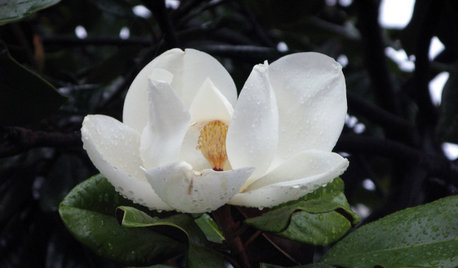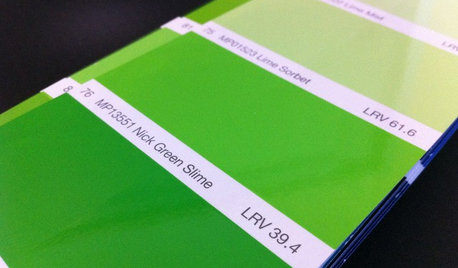Disappearing Pecans
MiaOKC
11 years ago
Related Stories

MATERIALSWhat to Ask Before Choosing a Hardwood Floor
We give you the details on cost, installation, wood varieties and more to help you pick the right hardwood flooring
Full Story
ENTERTAININGBeat Winter's Chill With an Indoor Picnic
Build warm memories with loved ones by bringing lighthearted outdoor dining to your living room
Full Story
LANDSCAPE DESIGN15 Great Ideas for a Lawn-Free Yard
End the turf war for good with hardscaping, native grasses and ground covers that save water and are easier to maintain
Full Story
FEEL-GOOD HOMEWhat Really Makes Us Happy at Home? Find Out From a New Houzz Survey
Great design has a powerful impact on our happiness in our homes. So do good cooking smells, family conversations and, yes, big-screen TVs
Full Story
LANDSCAPE DESIGNGet Along With Less Lawn — Ideas to Save Water and Effort
Ditch the mower and lower your water bill while creating a feast for the eyes with diverse plantings and gathering places
Full Story
GARDENING GUIDES10 Top Native Plants for the U.S. Southeast
For a low-maintenance and wildlife-friendly landscape, use Southern natives that withstand heat and humidity
Full Story
MOST POPULARPros and Cons of 5 Popular Kitchen Flooring Materials
Which kitchen flooring is right for you? An expert gives us the rundown
Full Story
LIFE6 Ways to Cool Off Without Air Conditioning
These methods can reduce temperatures in the home and save on energy bills
Full Story
DECORATING GUIDESFrom Queasy Colors to Killer Tables: Your Worst Decorating Mistakes
Houzzers spill the beans about buying blunders, painting problems and DIY disasters
Full Story
DECORATING GUIDESWhat Goes With Dark Wood Floors?
Avoid a too-heavy look or losing your furniture in a sea of darkness with these ideas for decor pairings
Full StorySponsored
More Discussions







Okiedawn OK Zone 7
chickencoupe
Related Professionals
Belmont Landscape Architects & Landscape Designers · Bedford Heights Landscape Contractors · East Patchogue Landscape Contractors · Golden Gate Landscape Contractors · Saint John Landscape Contractors · Sun City Center Landscape Contractors · West Allis Landscape Contractors · West Palm Beach Landscape Contractors · Austin Decks, Patios & Outdoor Enclosures · Blue Springs Decks, Patios & Outdoor Enclosures · Gastonia Decks, Patios & Outdoor Enclosures · Green Bay Decks, Patios & Outdoor Enclosures · Green Bay Decks, Patios & Outdoor Enclosures · Pittsburgh Decks, Patios & Outdoor Enclosures · Pittsburgh Decks, Patios & Outdoor Enclosuresscottokla
MiaOKCOriginal Author
teach_math
susanlynne48
chickencoupe
soonergrandmom
Okiedawn OK Zone 7
MiaOKCOriginal Author
MiaOKCOriginal Author
scottokla
Okiedawn OK Zone 7
MiaOKCOriginal Author
MiaOKCOriginal Author
p_mac
MiaOKCOriginal Author
scottokla
scottokla
scottokla
jessaka
Okiedawn OK Zone 7
shankins123
scottokla
shankins123
8maryann
Okiedawn OK Zone 7
scottokla
shankins123
Greg Rasmussen
Willie Simmons